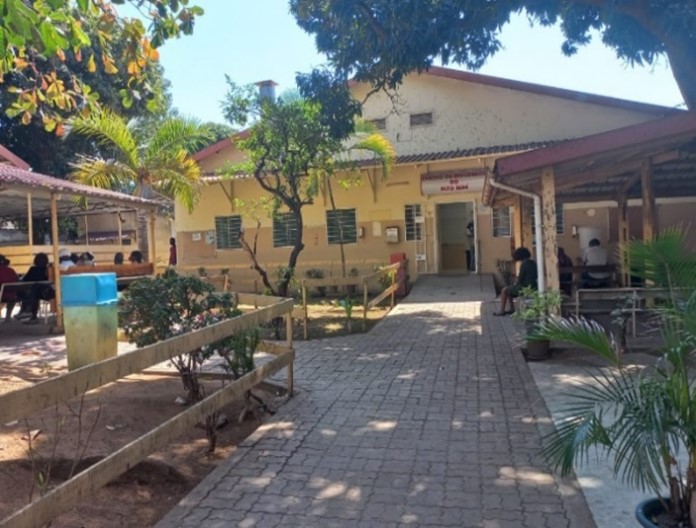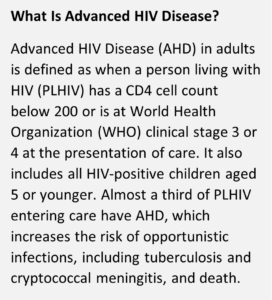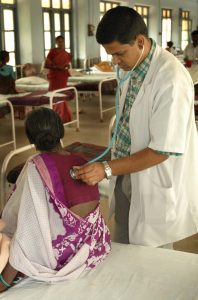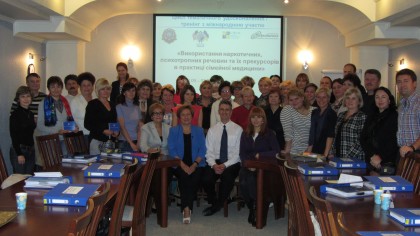
The International AIDS Society (IAS) hosted the 12th IAS Conference on HIV Science on 23 – 26 July 2023 in Brisbane, Australia, and virtually. This biennial conference brings together top HIV researchers, experts, and scientists for presentations and discussions on the latest advances in HIV research and practice.
This year, representatives from the International Training and Education Center for Health (I-TECH), I-TECH’s partner network organizations, and the Centers for Disease Control and Prevention (CDC) shared findings from I-TECH-supported programs in India, Malawi, and Zimbabwe. Read the ePoster abstracts below.
India:
- Ramesh Allam, MBBS, Public Health Specialist, CDC India – “Implementation Of Person-Centered Strategies To Improve Reengagement In Care In Mumbai, India” & “Improved Treatment Outcomes Using Family-Centric Care Among PLHIV, Nagaland, India-2022”
- Shrikala Acharya, MD, Professor (Addl), Dept. of Community Medicine, KEM and Former Additional Project Director, Mumbai District AIDS Society (MDACS) – “Feasibility of Implementing Advanced Disease Management Package as Part of Routine, Standard of HIV Care at ART Centres in Mumbai, India”
- Vijaykumar Karanjkar, MBBS, PGDPH, Additional Project Director, MDACS – “Saturation of Tuberculosis Preventive Therapy among People Living with HIV, Mumbai, India”
Malawi:
- Christel Saussier, PhD, Public Health Institute of Malawi/Ministry of Health Emergency Operations Center Technical Assistant, I-TECH Malawi – “Sentinel Surveillance for Early Detection of COVID-19 in Malawi”
- Alinune Kabaghe, MBBS, PhD, Epidemiologist, CDC Malawi – “Use of recent HIV surveillance data to respond to ongoing HIV transmission in Malawi”
Zimbabwe:
- Edward Dembedza, MPH, BSc HEP, DipN, DipHAE, Program Coordinator, Zimbabwe Technical Assistance, Training, and Education Center for Health (Zim-TTECH) – “Client Cohorting, Community Outreach, and On-site Sample Preparation, Increase HIV Viral Load Coverage in Western Zimbabwe”
- Charlton Muchemwa, MPH, Program Officer, Pangea Zimbabwe AIDS Trust (PZAT) – “Data Driven Programming: Using Hot Spot Mapping Data to Improve Case Detection and Linkage to HIV Prevention and Treatment Services in Harare, Zimbabwe”
- Shamiso Nyakuwa, MSc, Program Lead, Pangea Zimbabwe AIDS Trust (PZAT) – “Integrating Peer-led Problem-Solving Therapy with HIV Prevention and Treatment to Address Mental Health Issues Among Key Populations: Lessons from a Pilot Project in Harare, Zimbabwe”
- Ann Sellberg, MD, MSc Epidemiology, Clinical Mentor, Zvandiri – “Implementation of a Quality Improvement Collaborative of HIV Status Disclosure of Young People Living with HIV in Zimbabwe”
- Precious Moyo, MA, Program Coordinator, Pangea Zimbabwe AIDS Trust (PZAT) – “Establishment of Key Populations-Led Facility Monitoring Committees for Strengthening Uptake of Comprehensive HIV Prevention Services at Public Health Facilities in Harare, Zimbabwe”
- Brighet Chiururwi, MSc, Program Officer, PZAT – “Demand Creation Strategies to Increase Acceptance of HIV Pre-Exposure Prophylaxis Among Pregnant and Breastfeeding Women (PBFW) as Part of the eMTCT Strategy in Mazowe District, Zimbabwe”







